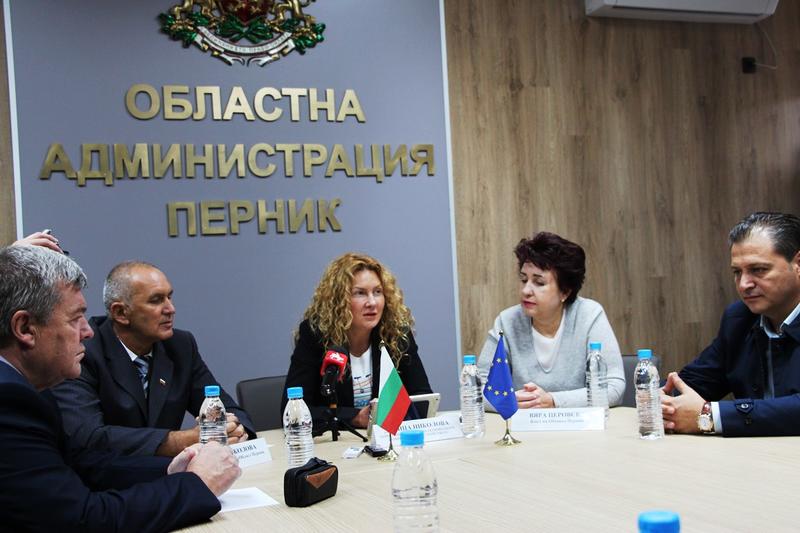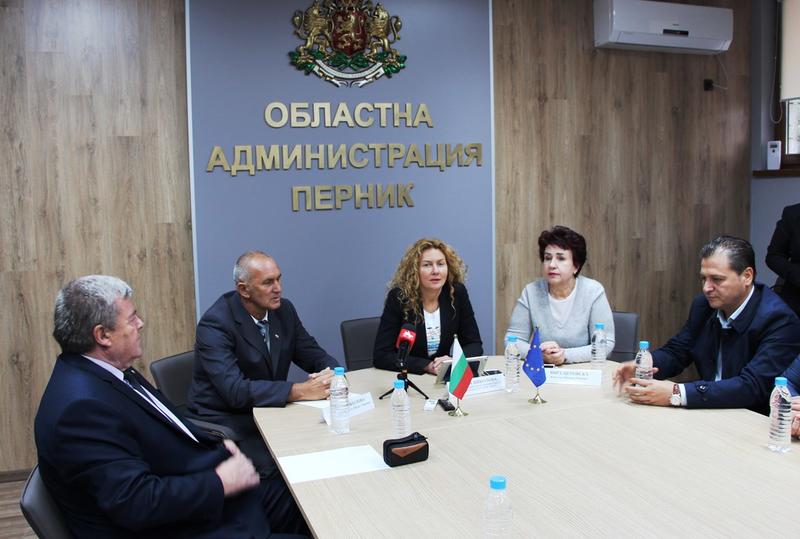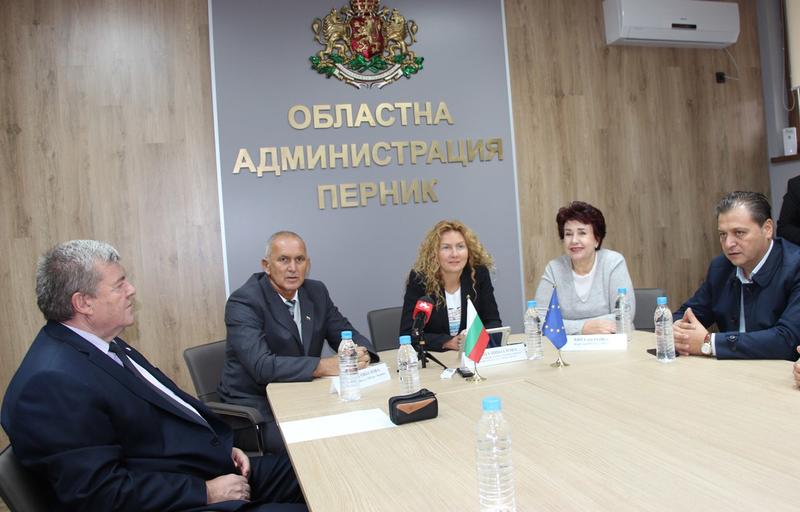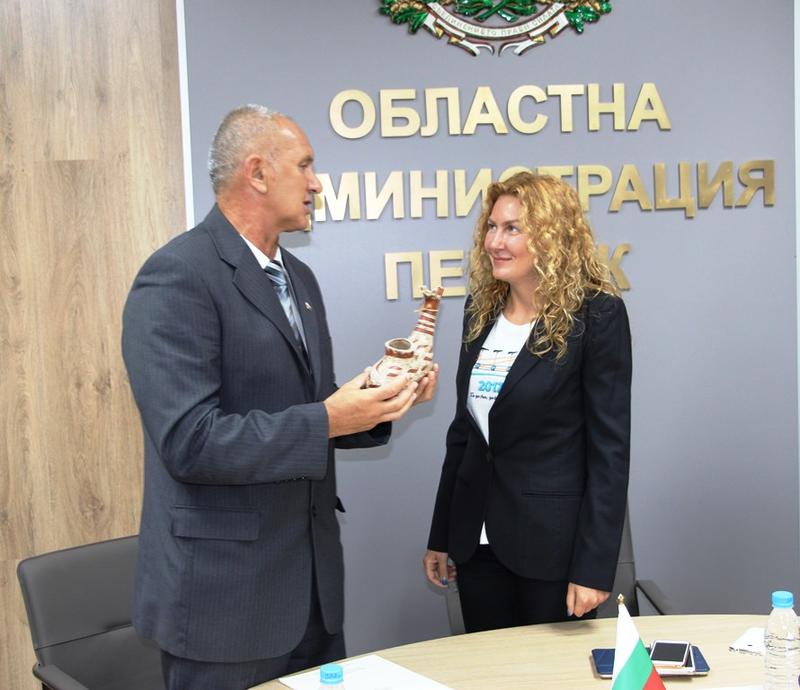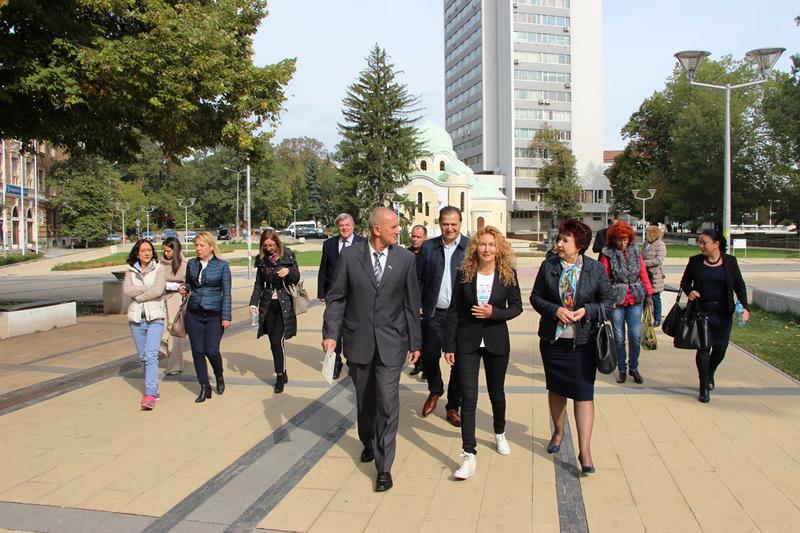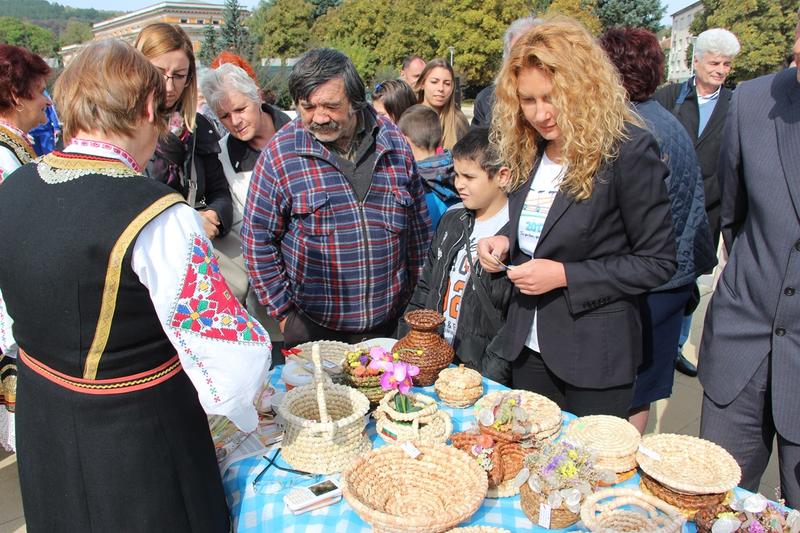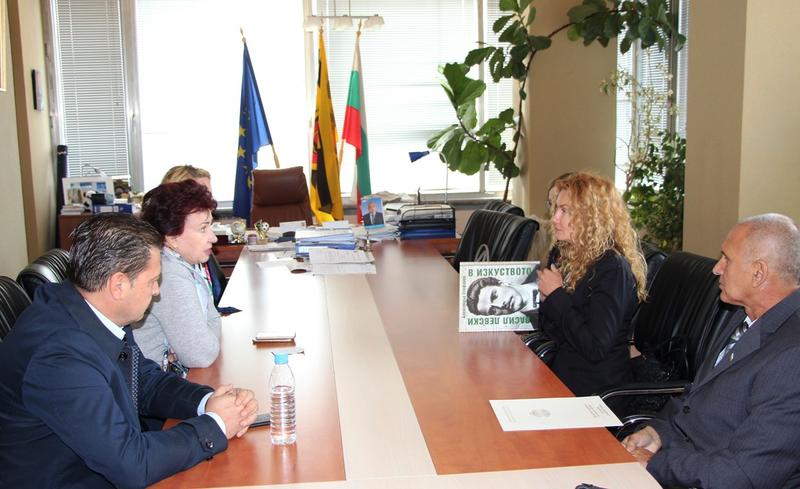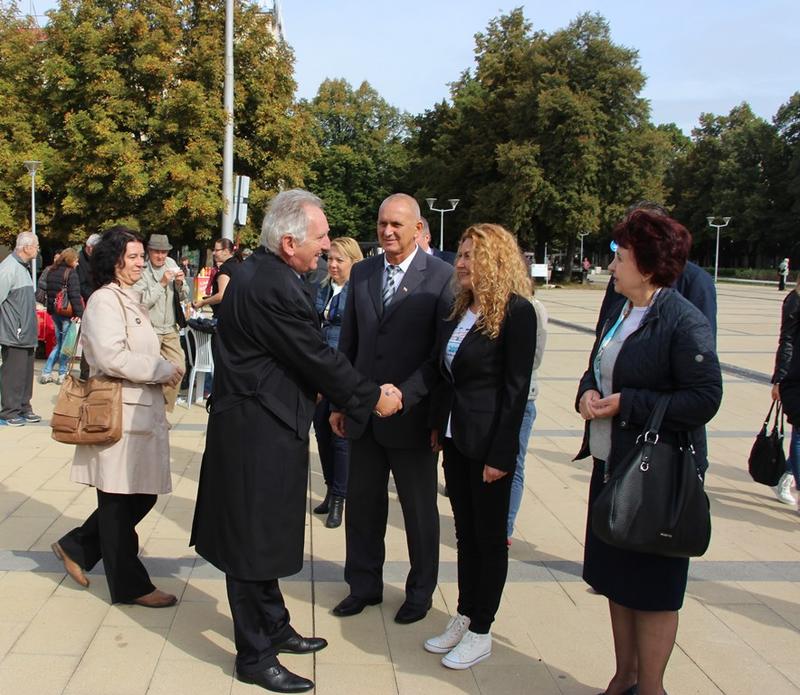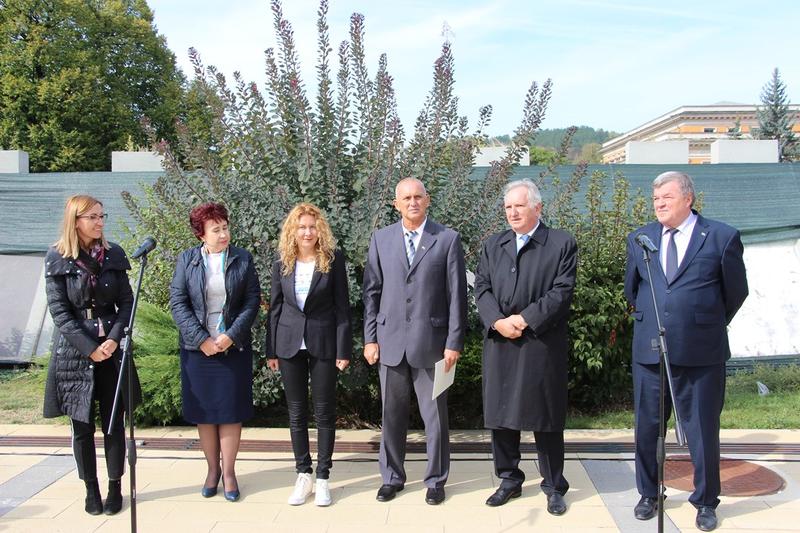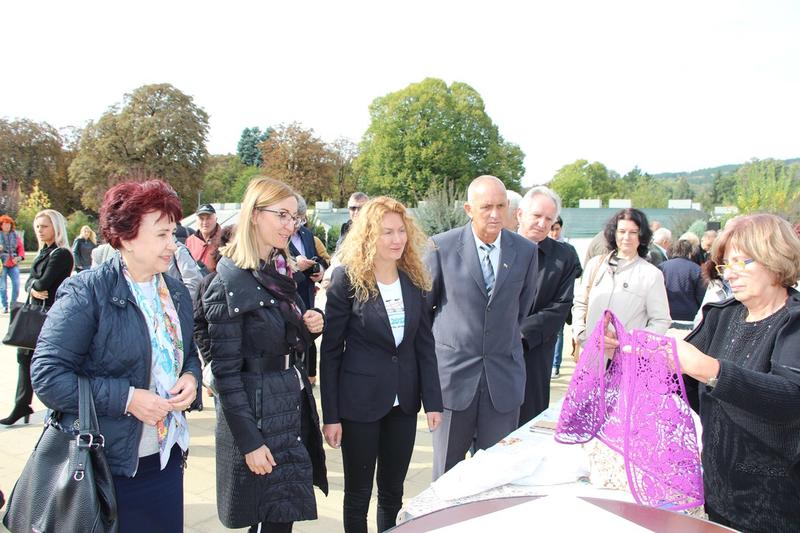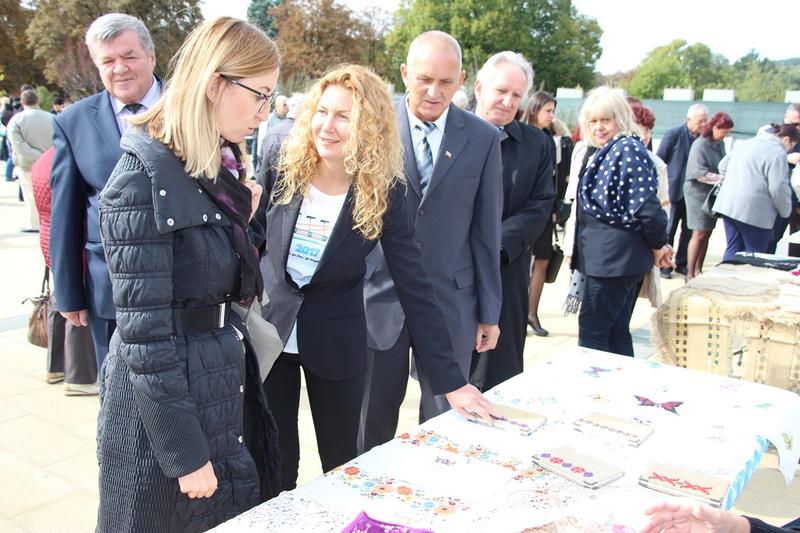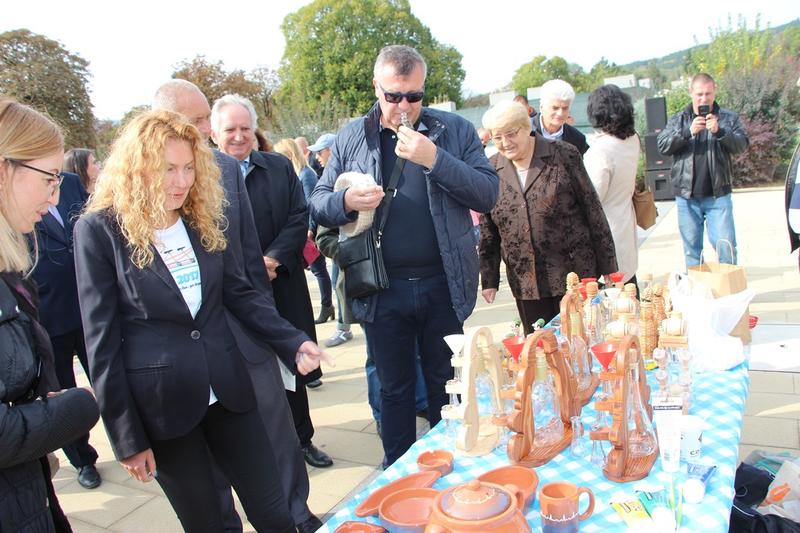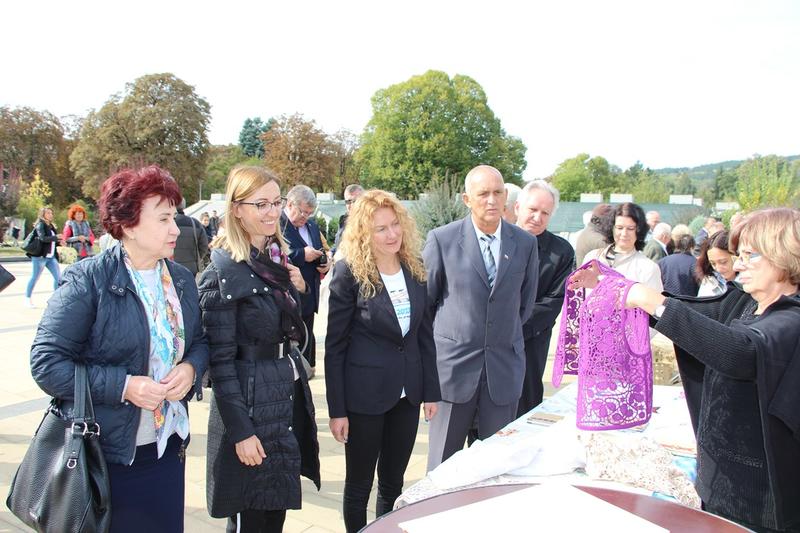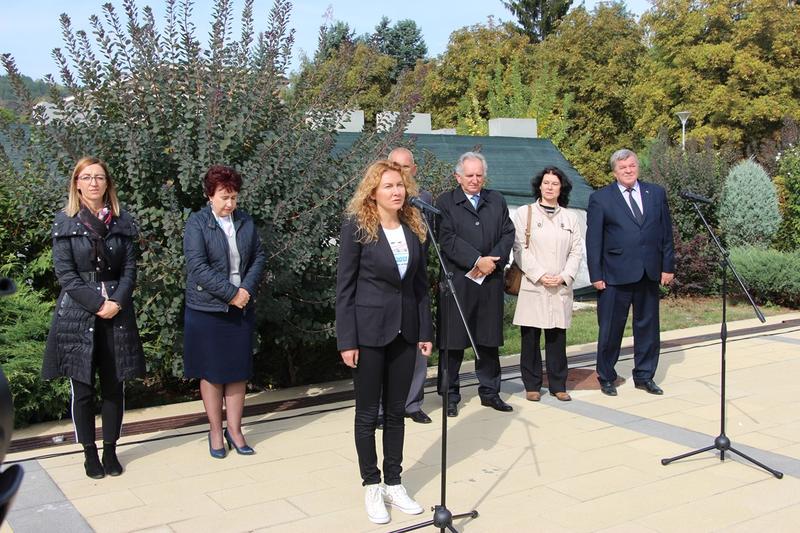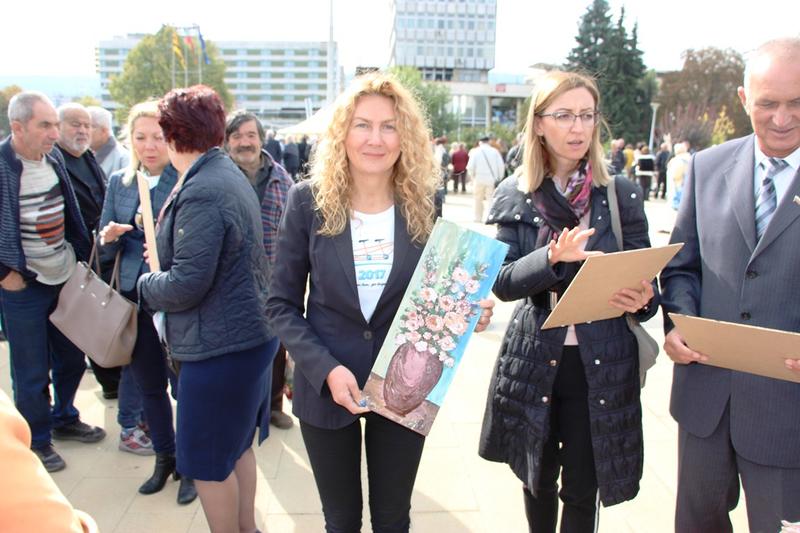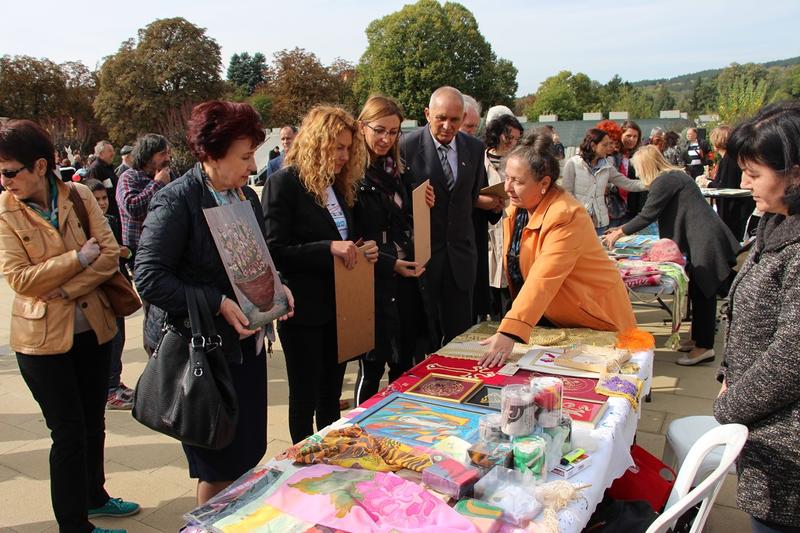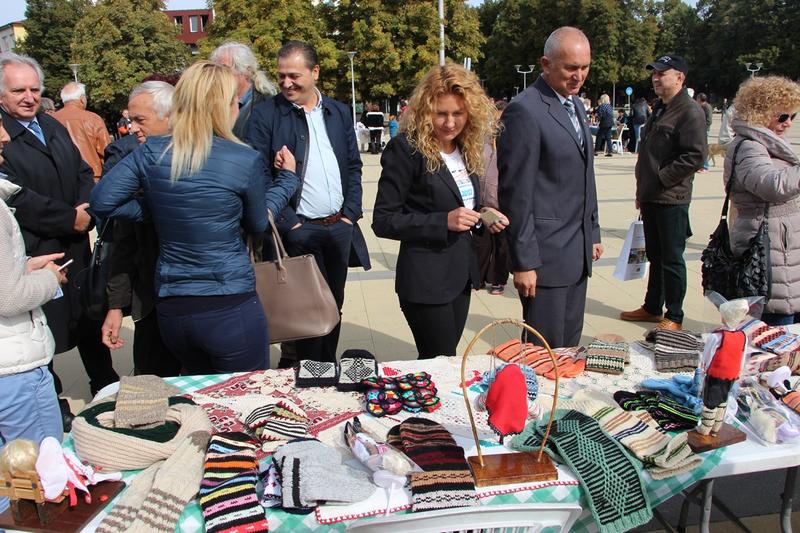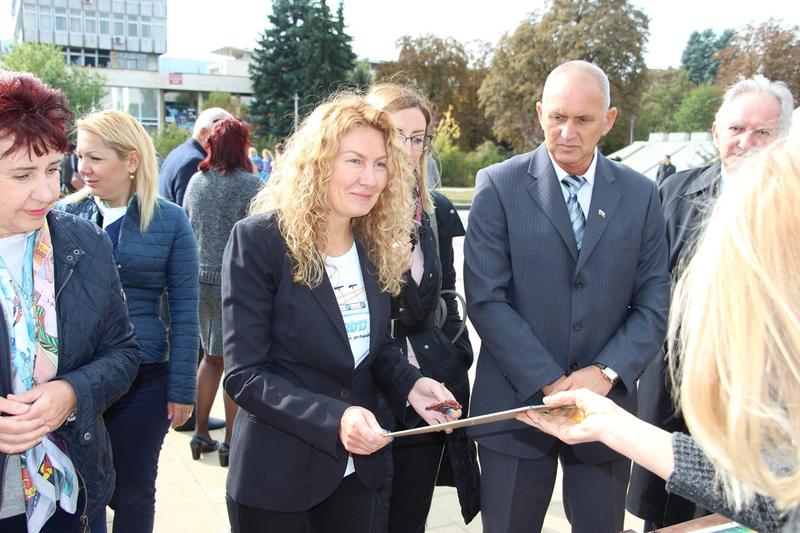Deputy minister Denitsa Nikolova: MRDPW will defend the policy for balanced development of regions as a main priority during the EU presidency
Deputy minister Denitsa Nikolova: MRDPW will defend the policy for balanced development of regions as a main p
By Ministry of Regional Development and Public Works
In the long-term vision for the country's development, we have to coordinate the investments of each individual department, stated the Deputy regional Minister
Over BGN 24 million is the amount of envisaged investments under Operational programme “Regions in growth” 2014-2020 in Pernik, besides the investments within programmes for territorial and cross-border cooperation, of which the municipality is a beneficiary. These are extremely important for the economy's development and the renewal of towns, this is why it is paramount for the Ministry of regional development and public works to defend this type of financing after 2020 as well, and it will support it as a main priority during Bulgaria's presidency of the EU. This was stated in Pernik by the Deputy Minister of regional development and public works Denitsa Nikolova, who took part in a public discussion of the programme for the upcoming Presidency of the Council of the European union, and the priorities within MRDPW's competences. The Mayor of Pernik municipality Vyara Tserkovska, deputy prefects Ivo Ivanov and eng. Vasil Pavlov, Deputy Mayors of Pernik municipality, experts from the administration and others took part in the initiative.
Deputy Minister Nikolova stated that thanks to European solidarity and the government's support, Pernik's look is changing, economic activity is developing, and more jobs are being created. “In partnership with the municipality, we are doing all we can to turn Pernik, although a satellite town to the capital, into an economically developed center", she said. The Deputy Minister commented that MRDPW's main priorities during the EU presidency will the development of urban policy in EU, territorial cohesion, reduction of differences between regions and individual EU member states. “Territorial cohesion is the third pillar of the cohesion policy, as an opportunity to reduce economic, social, and demographic imbalances", stated Nikolova. She noted that in the programme period until 2020, Bulgaria will receive over EUR 7.6 billion under operational programmes, which is being invested in this specific area.
A trend is forming for EU financing to be established and concentrated in large urban centers, leading to an imbalance in peripheral regions, stressed Nikolova. "The national policy we will be following during the presidency is to defend and support the polycentric model of development leading to the financing and development of smaller towns as well. Otherwise, it will be difficult to achieve a balanced development of regions in the country, because the main focus is on large cities. This is why it is important to defend EU financing for the entire territory of the country", she asserted. According to the Deputy Minister, efforts need to be made also for the establishing of a policy for regional development through sector agencies. Presently, each individual state agency has its own vision and strategy for development, focusing on the resources it has available. “We have to develop the synergy between regional development and sector policy to achieve a greater effect from the investments we are making", said Nikolova. According to her, this should play a key role at a national level, and should be inherited by future governments as a future vision for the country's development.
In Pernik, Deputy Minister Denitsa Nikolova, the Mayor Vyara Tserkovska, and the Ambassador of Serbia in our country Vladimir Churgus opened “Cross-border craft fair” under the motto "To get far, go together", organized by the Programme for cross-border cooperation INTERREG IPA Bulgaria – Serbia 2014-2020. It marked the celebration of the Day of European cooperation in the town.
“I am happy that together we are celebrating this holiday of European solidarity. Funds provided by the EU in support of regions help achieve an effect for the regions and a better life for people in them. Europe has no borders when we want to achieve results, preserve and develop our cultural and historical heritage and identity, in order to achieve continuity for future generations. I hope that through crafts, young people will learn a lot about our past", said Deputy Minister Nikolova at the opening.
A number of Serbian and Bulgarian artisans from the cross-border region took part in the celebration, demonstrating traditional crafts preserved from the past. Artisans from Panteley (Nis, Serbia) and Radomir, Kyustendil, Sofia, Dragoman, and Yardzhilovtsi (Bulgaria) were among the participants. Guests at the celebration can experience embroidery and knitted items, wood carving and stained glass, leather and pottery items etc. hand-made by the masters. The Bulgarian stand for creation of souvenirs from corn leaves is especially attractive.



